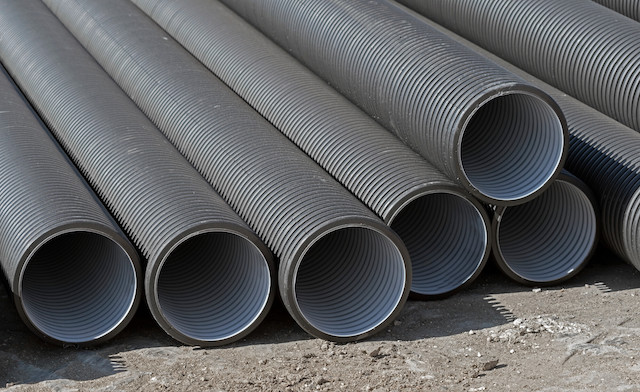
Are you interested in the difference between glass-filled nylon vs polymer?
Both glass-filled nylon and polymer are used for a long list of applications. This includes personal care products, cars, and building materials.
You may not be sure of the best way to use these materials. Understanding the basic properties of both of them will help with this.
Read further to understand the different features of both glass-filled nylon vs polymer.
Glass-filled nylon and polymer are two commonly used materials in various industries.
Glass-filled nylon is also known as glass-reinforced nylon or nylon composite. It is a type of engineering plastic that is reinforced with glass fibers. It offers exceptional strength, rigidity, and dimensional stability. This makes it ideal for applications that need high mechanical performance.
Polymers can be natural or synthetic and have diverse properties. These properties depend on their chemical composition and processing techniques. They are widely utilized due to their versatility and lightweight nature. Ease of processing is also a reason.
Both glass-filled nylon and polymers have their unique characteristics. They are chosen based on specific requirements for a wide range of applications.
Glass Filled Nylon is composed of nylon polymer infused with glass fibers. Glass fibers enhance the material’s properties.
The nylon provides toughness and flexibility. The glass fibers contribute strength and rigidity. This combination results in a composite material. This composite material has an improved mechanical performance compared to conventional nylon.
Glass Filled Nylon exhibits high tensile strength. It also has excellent dimensional stability, and resistance to wear and abrasion.
It also offers good chemical resistance and can withstand moderate temperatures.
Polymers are made up of long chains of molecules. They are versatile materials used in various industries.
Polymers can either be natural or synthetic. Natural polymers include substances like rubber and cellulose. Synthetic polymers are man-made, such as plastics.
Polymers have different properties based on their composition. They can be flexible or rigid, transparent or opaque.
They are lightweight, making them easy to handle and transport. Polymers also exhibit excellent electrical insulation properties. They can also be molded into different shapes and sizes, offering design flexibility.
Their resistance to corrosion and chemicals makes them suitable for diverse applications.
We’ve covered the basics of the two different materials. Now, we’ll turn our attention to the main points of difference between them.
We’ll consider various factors that you might consider during the production process. Then we can give our recommendations of which material is best for each factor.
Strength and durability are essential factors when comparing Glass Filled Nylon and Polymer.
Glass Filled Nylon offers enhanced strength, making it sturdier than conventional nylon. The glass fibers reinforce the material, improving its load-bearing capacity.
Polymer exhibits good strength and durability depending on its composition.
Glass Filled Nylon is generally stronger. That being said, polymers can still provide enough strength for many applications.
Both materials can withstand everyday wear and tear. Glass Filled Nylon has a higher resistance to impact and abrasion.
Glass Filled Nylon maintains a certain degree of flexibility. It offers a balance between rigidity and flexibility. This makes it suitable for applications requiring both strength and resilience.
Polymers exhibit inherent flexibility, allowing for easy bending and deformation without breaking.
When it comes to impact resistance, Glass Filled Nylon excels. Polymers also have good impact resistance. But they may not match the level provided by Glass Filled Nylon.
Glass Filled Nylon exhibits excellent heat resistance. It can withstand higher temperatures without significant deformation or degradation. This makes it suitable for applications in high-temperature environments.
The heat resistance of polymers varies depending on the specific type and composition. While some polymers have good heat resistance, others may have lower thresholds. It is important to select the appropriate polymer for the desired temperature range.
Glass Filled Nylon has excellent chemical resistance. It can withstand exposure to a wide range of chemicals. This includes solvents, oils, and acids, without significant degradation.
Polymers vary in their chemical resistance. Some are highly resistant to specific chemicals. Others less so.
Getting the right composition is important. This is especially true if you’re going to need your polymer to be very chemical resistant.
We know that choosing the right materials is often constrained by the budget that you have to work with. Your manufacturing costs must always be considered.
Glass Filled Nylon tends to be relatively more expensive. This is due to the added cost of the glass fibers. Its increased strength and performance may justify the higher price for some people.
Polymers generally offer a more cost-effective option. They are widely available and produced in large quantities. They come in various types and grades.
The availability of polymers is generally higher. This makes them readily accessible in the market.
So that’s the breakdown on Glass Filled Nylon vs. Polymer. Evaluating their composition, properties, and suitability for specific applications is crucial.
If you need a bit more help, it may be helpful to consult experienced industry leaders like Severna. We are known for our expertise in advanced materials and manufacturing solutions.
We have a commitment to quality, innovation, and customer satisfaction. Severna offers reliable and cost-effective solutions that meet the needs of different industries.
Contact us today to see how we can help your business.